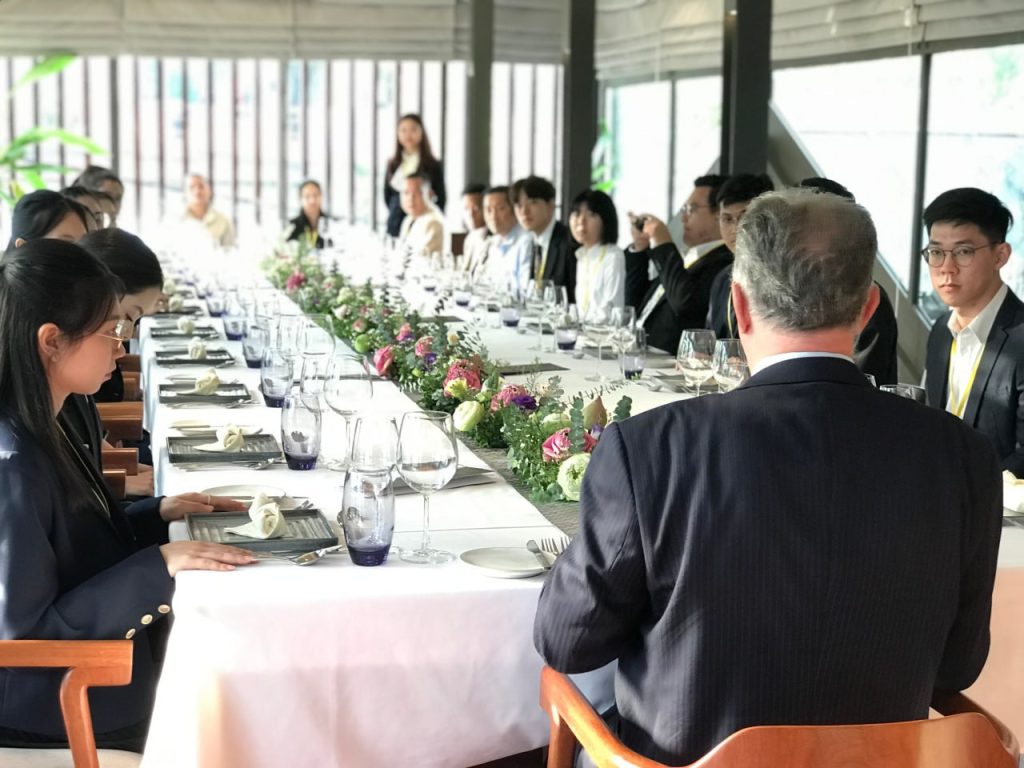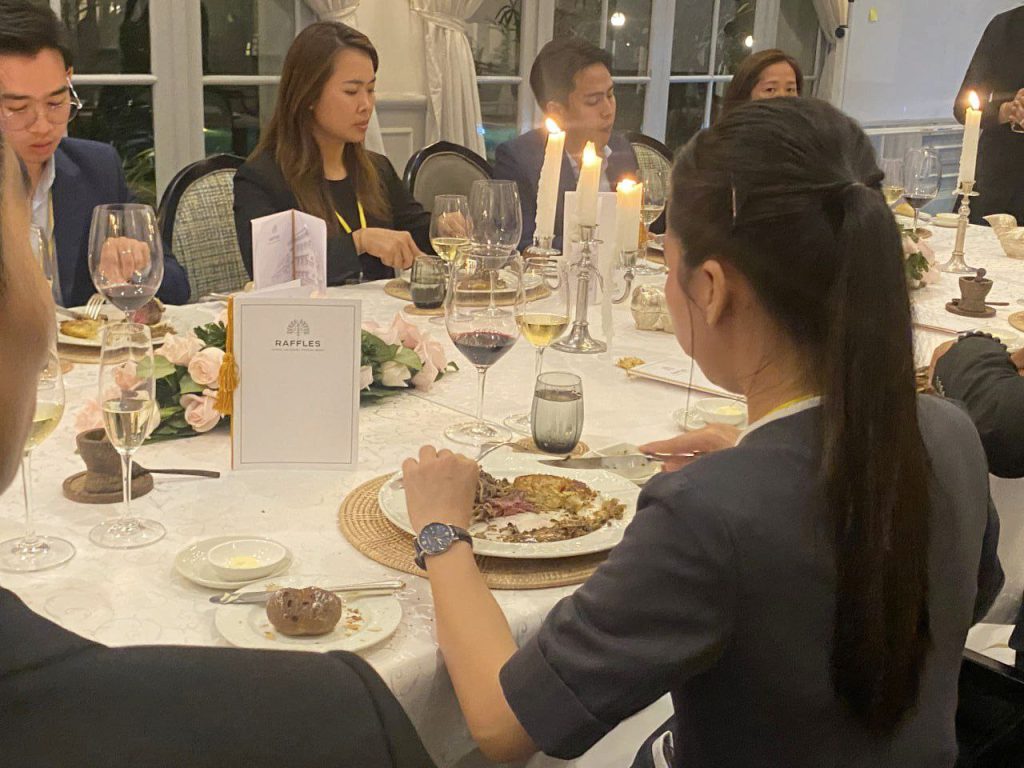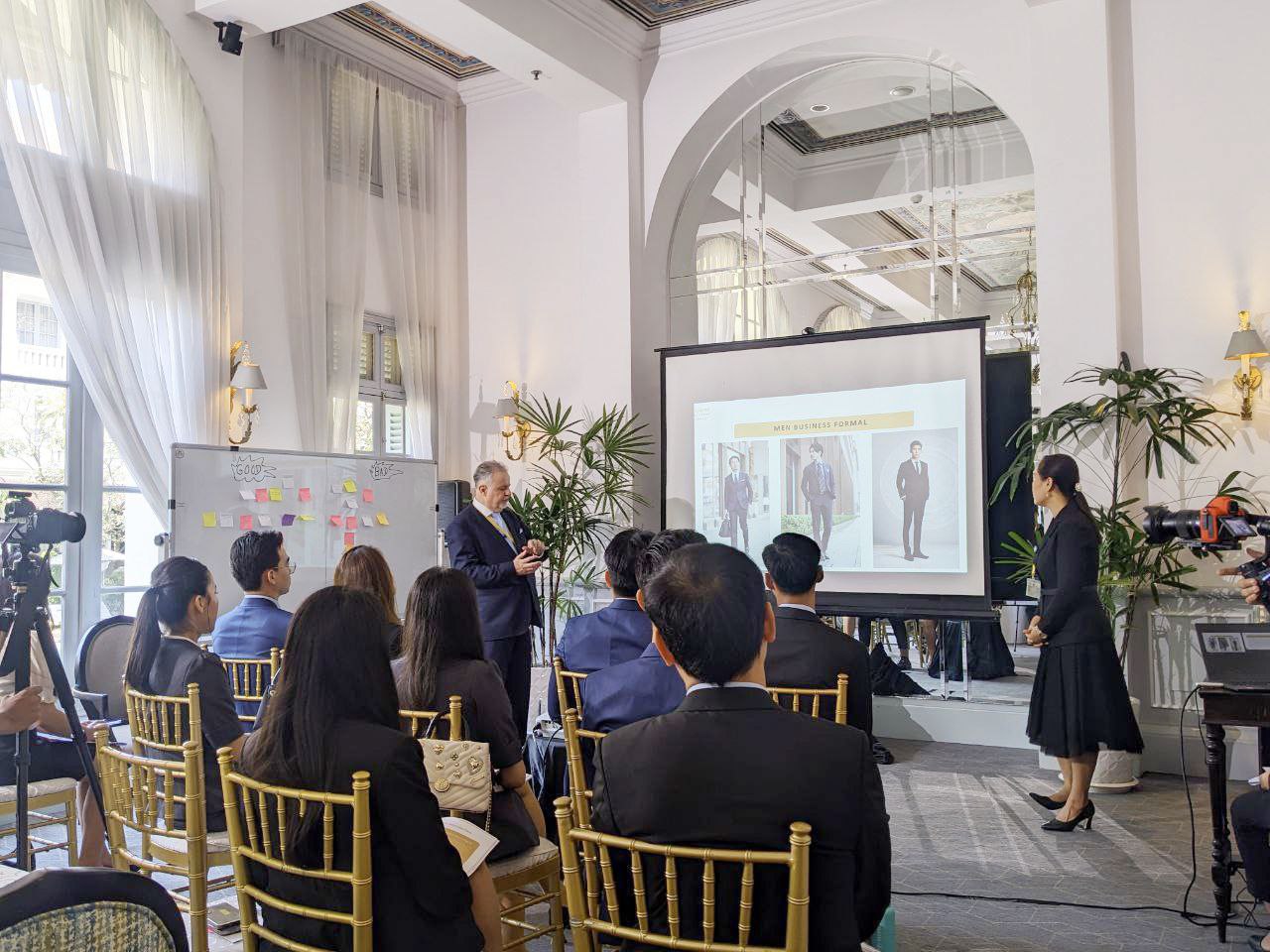By Pierre Tami
Why We Still Bother With Etiquette
In today’s fast-paced digital age, etiquette may seem like an outdated concept. Isn’t it just a relic from a more formal past? Absolutely not. Etiquette remains deeply relevant and even essential in modern society. Whether in personal or professional contexts, it provides the tools we need to navigate a complex, interconnected world with respect, confidence, and professionalism.
Timeless Elegance in a Modern World
Politeness, elegance, and professionalism never go out of style. These qualities are as relevant today as they ever were, especially in professional environments where confidence and comfort in social settings are vital. In my experience running Masterclass courses, I’ve been impressed by the curiosity and eagerness of young professionals—especially Cambodians—seeking to learn not only traditional etiquette but also alternative ways to correct what they perceive as “wrong manners.”
Books such as The Etiquette Advantage in Business and Miss Manners Minds Your Business continue to be relevant because they adapt timeless principles to modern life. Etiquette isn’t about rigid rules—it’s about applying respect and consideration to today’s situations.

First Impressions Matter
Studies show we form impressions in just seven seconds. In today’s world, these impressions often begin online—through a LinkedIn profile, an email, or even a text message. A thoughtful message or a professional online presence can set a strong foundation for future interactions. On the other hand, a poorly written email or rude tone can cause damage before a relationship even begins. Etiquette gives us a framework for creating positive first impressions—crucial in both physical and digital spaces.
The Foundation of Strong Relationships
Strong personal and professional relationships are built on trust and mutual respect. Simple acts—saying “please” and “thank you,” listening attentively, showing empathy, and respecting personal space—may seem small, but they are powerful. They foster goodwill, ease communication, and deepen connections. Conversely, ignoring these basic principles can create tension and erode relationships over time. Etiquette oils the wheels of interaction—it makes human connections smoother, kinder, and more effective.
Navigating Complex Social Landscapes
The modern world presents a wide array of social challenges—from workplace dynamics to multicultural teams to online interactions. Etiquette provides a compass for navigating these complexities. Understanding social cues, practicing active listening, managing disagreements diplomatically—all these are modern applications of traditional etiquette. When people lack these skills, interactions can quickly devolve into misunderstanding or conflict. With them, we build stronger, more respectful environments.

A Key to Professional Success
Today, etiquette is more than a nicety—it’s a critical professional skill. Employers increasingly value team members who are respectful, composed, and able to interact gracefully with others. Workplace etiquette—from appropriate dress and email tone to table manners and meeting behavior—reflects not only personal standards but also emotional intelligence and maturity.
In Phnom Penh, many professionals attend breakfasts, cocktail events, or formal dinners hosted by ambassadors or officials. These settings often make people nervous, especially when they’re unsure how to hold a wine glass or which fork to use. Table manners, from how to eat soup to how not to take your neighbor’s bread, are among the most requested topics in our courses. In such high-pressure environments, mastering etiquette isn’t just about appearances—it’s about confidence and poise.
Etiquette as an Ethical Practice
Beyond its practical uses, etiquette has ethical dimensions. Respecting others’ time, opinions, and space reflects a basic moral code. Etiquette encourages empathy, patience, and kindness—traits essential to a civil society. At a time when public discourse can be divisive and empathy seems scarce, practicing good manners is a quiet but powerful act of respect. It reminds us to think beyond ourselves and value the people we interact with.
Etiquette Evolves
Crucially, etiquette is not frozen in time. It evolves with society. Modern etiquette reflects the realities of digital life, hybrid workplaces, and global interaction. Rules adapt, but the core principles—respect, consideration, and courtesy—remain unchanged. Updating etiquette for the times doesn’t mean discarding the old ways; it means applying timeless values in new contexts.
For example, digital etiquette today includes replying to messages promptly, using appropriate tone in emails, and maintaining professionalism on social media. None of these practices existed a generation ago, yet they are grounded in the same fundamental principles that once governed handwritten letters and phone calls.

Conclusion: Why It Still Matters
Etiquette is far from irrelevant—it is essential to thriving in the modern world. It enables us to make good impressions, build meaningful relationships, navigate social complexity, and succeed professionally. It guides us in treating others with dignity and helps create a more respectful and gracious society.
So, the question isn’t whether etiquette still matters. The real question is how we can continue to refine and adapt our understanding of it to meet the demands of today. Etiquette is not about outdated rules—it’s about timeless values in modern practice.
That’s why Etiquette Food and Travel offers tailored courses covering social and business etiquette, grooming, dress codes, walking, sitting, how to introduce ourselves with confidence, fine dining, and personal branding. In mastering etiquette, we’re not just learning rules—we’re cultivating presence, professionalism, and lasting impact.
Contact us at:
Tel: +855 (0) 11 431 011
Email: info@etiquettefoodandtravel.com





